I’ve been brewing my own Kombucha for several years. I love brewing my own as it allows me flexibility and control over every variable of the brewing. I also find that my kombucha is much more palatable than those purchased in stores.
There is a slight bit of science to getting it right. Finding the best tea for kombucha brewing is the foundation of good kombucha.
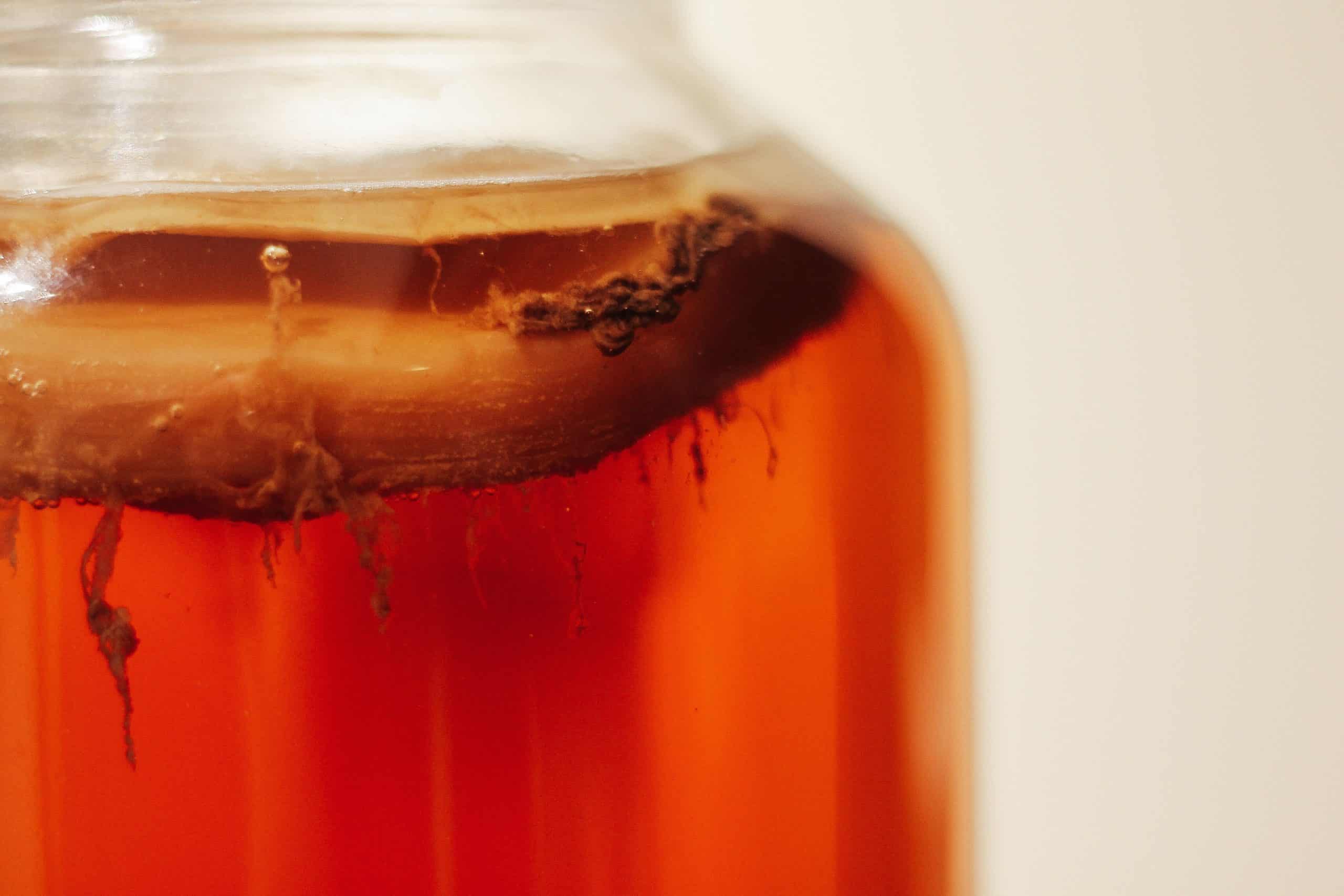
What is Kombucha?
If you are looking for the best tea for kombucha then it is likely you already know what kombucha is. Perhaps you followed a link here? I will give you a very brief description of Kombucha and a link to more detailed information.
The creation of kombucha comes from five ingredients:
Filtered Water – I choose filtered water because we can not always be sure what water is coming from our tap. Because I am drinking kombucha I want to make sure I am getting the healthiest version of it I can get. Starting with filtered water. I know there are no harmful chemicals, metals, or disinfectants.
I own a Berkey Water Filtration System in my home and it is invaluable to me. I use the water for everything I do including brewing my tea for Kombucha.
Not everyone wants a big stainless vat in their home to filter water. If that is the case I suggest Lifewater.
The pH of LIFEWTR is in the range of 6.4 to 7.4 LIFEWTR contains the electrolytes Magnesium Sulfate and Potassium Bicarbonate. These are added for taste.
Raw Sugar – Raw organic Turbino sugar is the best sugar used. You can use other organic sugars but I have always had success with the sugar I was first introduced to a few years ago. I’d never want to use regular shelf sugar. It would be very unstable in fermenting.
Tea – Well, isn’t that the reason we are here. I’ll be sharing more on this as we move forward.
Loose leaf Green and Black Tea provides a balanced diet for active yeast and bacteria, allowing them to ferment in peak condition.
SCOBY – SCOBY is an acronym for symbiotic colonies of bacteria and yeast. Without the SCOBY and the starter, you will have a long frustrating journey to creating a healthy kombucha. While a SCOBY may sound intimidating it’s the powerhouse behind any good kombucha.
Starter – Not everyone remembers that you need a bit of a starter to help jumpstart the brewing process. Whenever you purchase a SCOBY or get one from a friend you should receive a bit of the starter as well. The starter is the liquid leftover by the brewing process.
ORGANIC KOMBUCHA SCOBY made by a US-based brewery ensures the highest-quality ferment starter for your at-home kombucha tea. Sustainably sourced organic ingredients ensure the best SCOBY starter.
Along with the sugar, tea is the main fuel source for the SCOBY symbiotic colony of bacteria and yeast.
Missing any of these ingredients and you may not get kombucha, you may get mold or fuzz.
Here is a link to my detailed article about brewing your own kombucha.
The explanation of tea
There is only one type of tea to use in kombucha brewing. But, first, we must understand tea and why the choice for a kombucha brewing tea is so important.
While there are a few varieties of tea there is only one tea plant. That tea comes from a singular plant, the Camellia Sinensis. While there is one plant there are several ways of preparing the leaf from that plant. In each preparation comes a variation of that plant.
There are two times of harvesting tea each year. These harvests are called flushes. Spring is the first flush and Summer is the second. While each harvest may be from the same plant the taste of each will be unique to the flush. Some teas also can have a third autumn harvest.
Black tea contains an alkaloid called purines. That more purines in a tea than the more active the fermentation of your kombucha.
Black Varieties:
- Ceylon
- Darjeeling
- Assam
- English Breakfast
- Irish Breakfast
Black tea produces a dark golden hue and also a rich, bold earthy flavor
Green Tea is created from unoxidized leaves and is the least processed of all the teas. Green tea is native to China and India. The leaves are picked, steamed lightly, and dried. Green tea contains the most antioxidants as well as caffeine.
Green Varieties:
- Gunpowder
- Sencha
- Bancha
- Jasmine
- Gyokuro
- Tench
- Hojicha
Green tea produces a light hue giving a mild soft flavor
White tea is the tiny, young buds of the tea plant. These buds are harvested before they come into full bloom. White tea is minimally processed and not oxidized. High in antioxidants. White tea is not white in color but more a light yellow.
White Varieties:
- White Peony
- Silver Needle
- Shou Mai
- Darjeeling White
- Shou Mei
- Gongmei
White tea produces a milder-tasting Kombucha that is high in catechins.
Oolong teas fall in the middle of black and green teas. Oolong is made from the leaves, buds, and stems of the Camellia Sinensis plant. The leaves are semi-oxidized. On a wide sliding scale and are rolled, twisted, or curled into tight balls or thin strands.
Oolong Varieties:
- Da Hong Pao
- Jin Xuan
- Alishan
- Iron Buddha
Oolong teas produce a mild and delightful unique flavor. Lighter than
Pu-erh tea is large mature leaves that are compressed into a ball, patty, or brick. These are then left to age or ferment to bring the leaves to their full flavor. A bold tea can be made from both green and black teas.
Pu’erh Varieties
- Kai Yuan
- Chang Hu Yao
- Yunnan Jing Ma
- Lao Kang Tuo Cha
Pu-erh tea produces a bold flavor that is smooth, fruity, musky, grassy, and earthy.
While many herbs are called tea, they are not. They are herbals and do not contain the necessary nutrients. They lack greatly in becoming part of the 1st ferment of kombucha. They can become very important in the 2nd fermentation.
The best tea for kombucha
The nutrients found in tea, such as caffeine and theanine, act as food for the kombucha organism. Without this food, you will not have much growth or fermentation of your brew.
Did you know the name kombucha actually gives us a hint of the type of tea to use? While I have found
Kombucha translated from Chinese means “red tea bacteria”. Red tea is known in all other parts of the world as
Black tea has been the choice for brewing kombucha for years. The tannins and nutrients allow for the best fermenting with the SCOBY and sugar.
Yet there is more. A combination of black and green teas seems to make the best combination. The
So, the best tea for Kombucha is usually a blend. The most common recipe for brewing Kombucha includes a combination of green and black teas.
Loose leaf Green and Black Tea provides a balanced diet for active yeast and bacteria, allowing them to ferment in peak condition.
Benefits of drinking kombucha
Every day we are exposed to toxins and chemicals. Drinking a high antioxidant beverage such as kombucha can help reduce the oxidative stress that can cause damage to our bodies and cells. The benefits of kombucha are something worth looking into.
Nutritional benefits of drinking kombucha
Loose-leaf tea vs. tea bags
I prefer loose-leaf tea over bagged tea because:
The quality of tea in a teabag is generally of poor lower quality. What I sometimes consider is the scraps from the kitchen floor. Most teas bagged tea is very fine, like dust. When you brew bagged tea you will notice your tea gets dark faster. The brewing time is lessened because the tea is already broken down for you. Kombucha is a slow brew process and deserving of a leaf tea.
While tea bagged tea can be less expensive your value comes in quality, not quantity. Loose leave tea can extend further by using less.
Then there’s that teabag. Lots of controversy surrounds that bag. How it held together (heat, staple, glue, etc) and the chemicals of the bag itself. Using loose leaf tea and a muslin bag is less wasteful. Better for our environment by using the muslin bag multiple times.
Here is where those herbs come in
Have fun experimenting with your second ferment.
A second ferment is exactly that. After your, Kombucha has reached the desired flavor take it and put it into a wide mouth mason jar, and add your herbs.
My favorite herbs are:
- Lavender
- Jasmine
- Rose
- Mint
I’ve experimented with cherries and cloves before but for me, I did not like the flavor. I also have a friend who second ferments with tomatoes and peppers.
It’s whatever you want to experiment with.
Just add your desired herbs and allow them to sit from 2 days to a week. Look for the fermentation (fizziness), then strain into a clean container and place it in the fridge. ENJOY!
Teas to Avoid
Teas such as chai or earl grey as these teas contain oils that can destroy your SCOBY. Make sure to read your tea ingredients. Make sure nothing is flavored or has “natural flavors”. Natural flavors can be anything. When you are not sure of the ingredients, don’t use them.
Any herbal tea or herbal infused tea. You can have a
Strong or smokey teas such as Lapsang Souchong. This may not be damaging but the flavor will be less than appealing.
You will need the caffeine. Caffeine is a necessary ingredient for brewing so avoid all decaffeinated teas.
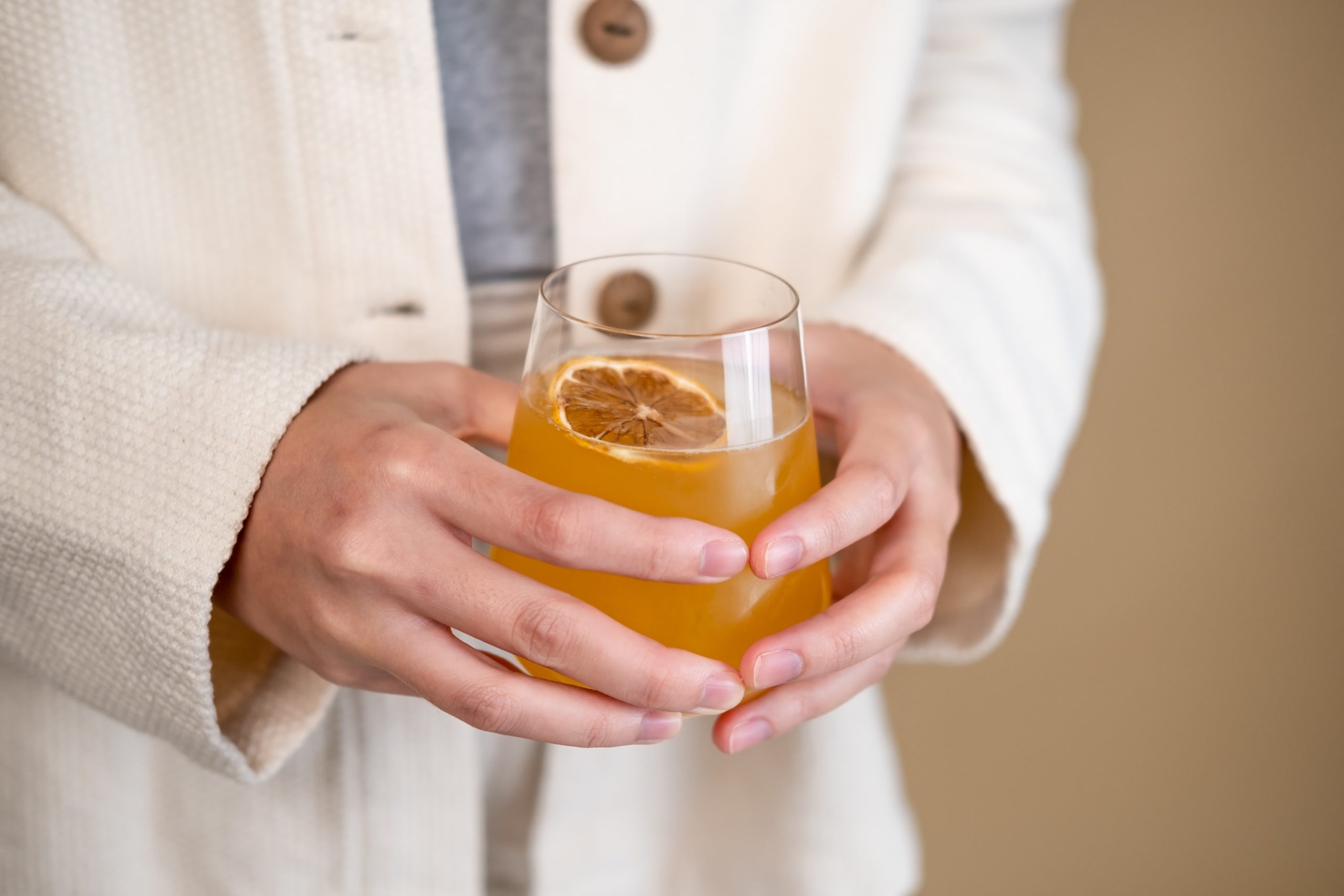
Conclusion
Give yourself some time to explore. Try different things, unique things, and find the combinations that work for you.
You can always combine your own black and green teas together or buy one already created for you. Finding the best tea for kombucha can be a personal choice and it’s always fun to experiment.
Kombucha is a healthy probiotic drink. Kombucha helps your body fight off the daily attacks from the world we live in. No one is going to escape our toxicity but we sure can do things to help our bodies (and minds) get through it.
Kombucha is one of those ways.





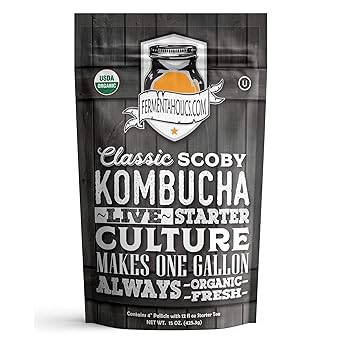
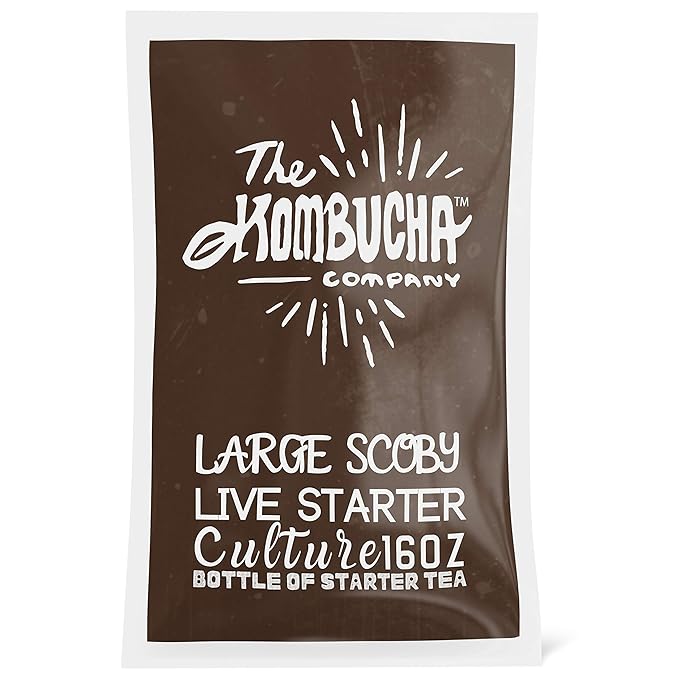
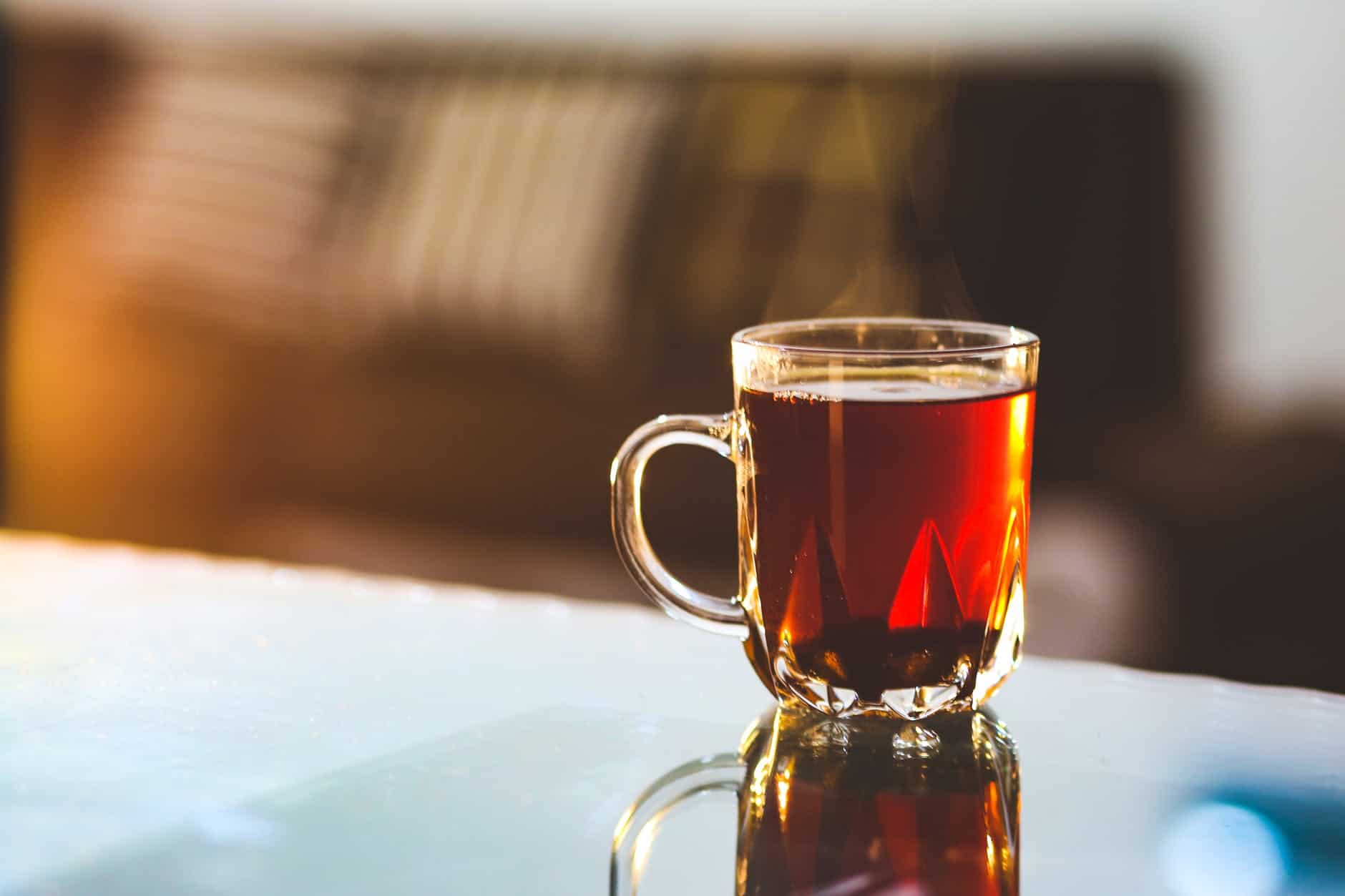

4 thoughts on “What Is The Best Tea For Making Kombucha”
Do you have a recipe for a gallon or whatever size batch you make? I was Wondering how much raw sugar to use? Many have told me not to use raw …
Thank you!
hi Catherine, Thanks for reading and asking a great question. From day one I have used only one recipe. This is the recipe that started it all for me, it’s from Manna Bar from Kansas City. I do use Raw sugar and always have with no issues at all.
You will find the recipe near the bottom of his older blog post I did.
Kombucha Link
Let me know how it works for you and if you have any other questions, I’m here, please ask!
Lisa B>
I have always ordered ready-made kombuchas from the website https://www.mrlemonade.co.uk/collections/kombucha, which I highly recommend, but I’ve decided to try making it myself and I was wondering what kind of tea to avoid. Thanks for this post, it was very helpful to me!
Susan, I apologize for the late reply, I had food poisoning… WOW, I never want to go through that again. Black tea is your best bet. I like a nice black/green tea combo as well.
Let me know how it goes. I love home-brewed so much better than store-bought!